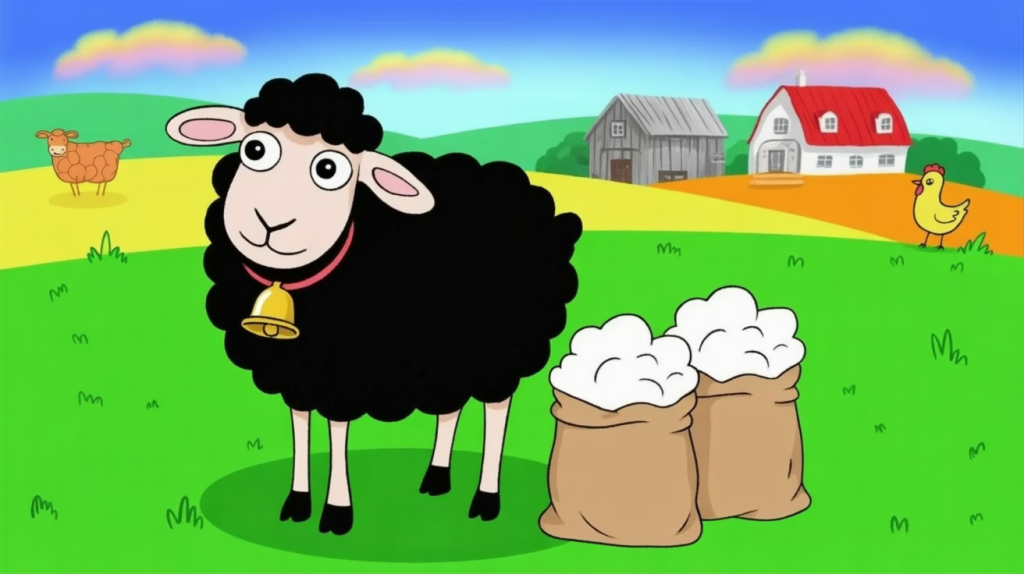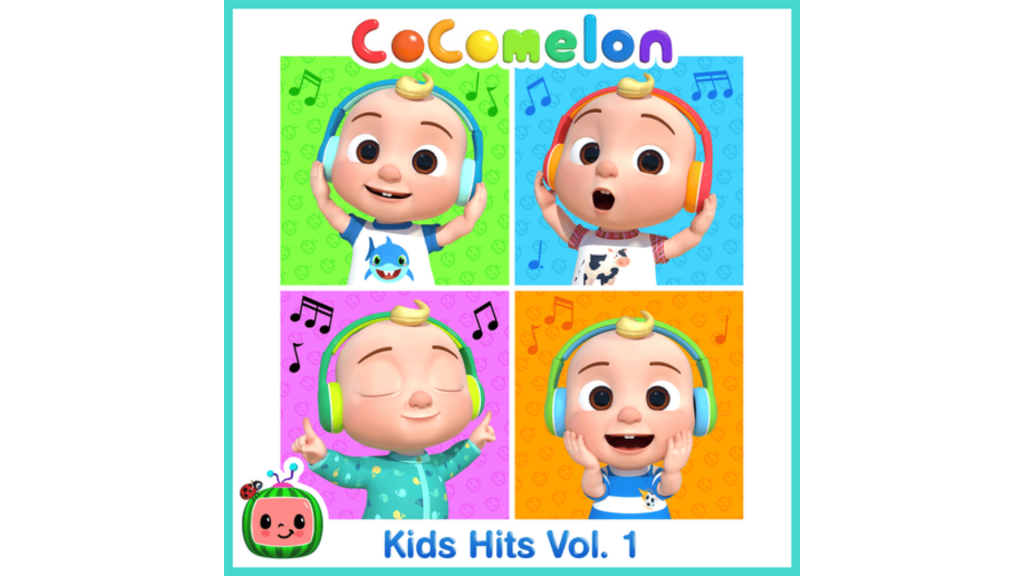Nursery rhymes are simple, catchy songs or verses that help young children develop language and memory skills.
They often feature repetitive phrases and fun rhythms, making them easy for little ones to sing along with.
These rhymes also teach important concepts like counting, animals, and sounds, while fostering early literacy and bonding with caregivers.
About the Song
Baa Baa Black Sheep is a classic nursery rhyme that teaches children about sharing and counting.
Its simple melody and repetitive lyrics make it easy for young ones to sing along.
The song also introduces basic concepts like giving and receiving through its playful, rhythmic structure.
| Attribute | Details |
|---|---|
| Released | Nov. 26, 2019 |
| Album | Cocomelon Essentials |
| Writers | Traditional |
| Producers | Cocomelon Production Team |
Cocomelon Baa Baa Black Sheep Lyrics

[Verse 1]
Baa-baa black sheep, have you any wool?
Yes sir, yes sir, three bags full
One for the master, one for the dame
One for the little boy who lives down the lane
Baa-baa black sheep, have you any wool?
Yes sir, yes sir, three bags full
[Verse 2]
Baa-baa blue sheep, have you any wool?
Yes sir, yes sir, three bags full
One for the master, one for the dame
One for the little boy who lives down the lane
Baa-baa blue sheep, have you any wool?
Yes sir, yes sir, three bags full
[Verse 3]
Baa-baa pink sheep, have you any wool?
Yes sir, yes sir, three bags full
One for thе master, one for the damе
One for the little boy who lives down the lane
Baa-baa pink sheep, have you any wool?
Yes sir, yes sir, three bags full
[Verse 4]
Baa-baa white sheep, have you any wool?
Yes sir, yes sir, three bags full
One for the master, one for the dame
One for the little boy who lives down the lane
Baa-baa white sheep, have you any wool?
Yes sir, yes sir, three bags full
Similar Rhymes Like Cocomelon Baa Baa Black Sheep
- Twinkle Twinkle Little Star: Twinkle, Twinkle, Little Star is a popular rhyme that helps children learn about stars and their twinkling lights.
- Old Macdonald Had A Farm: This song introduces various animals and their sounds, offering a fun way for children to learn about animals.
- Humpty Dumpty: A simple, rhythmic rhyme about a character named Humpty Dumpty and his fall from a wall, teaching basic storytelling.
- London Bridge Is Falling Down: It is a traditional rhyme with actions, often used in group games, teaching concepts of building and teamwork.
Frequently Asked Questions
Why Are Nursery Rhymes Important for Children?
Nursery rhymes help develop language skills, memory, rhythm, and social bonding. They also teach children about sounds, counting, and basic concepts in an engaging and fun way.
At What Age Can Children Start Enjoying Nursery Rhymes?
Babies can begin enjoying nursery rhymes as early as a few months old, especially when sung to them by caregivers. As they grow older, toddlers can begin to memorize the words and sing along.
How do Nursery Rhymes Benefit Early Learning?
Nursery rhymes foster early literacy by encouraging language development and improving listening skills. The rhythmic patterns and repetitive phrases also help with memory and speech development.
Can Nursery Rhymes be Used in Educational Settings?
Yes! Nursery rhymes are often used in schools and early childhood education settings to teach various concepts, from counting and colors to social skills and emotions.





















